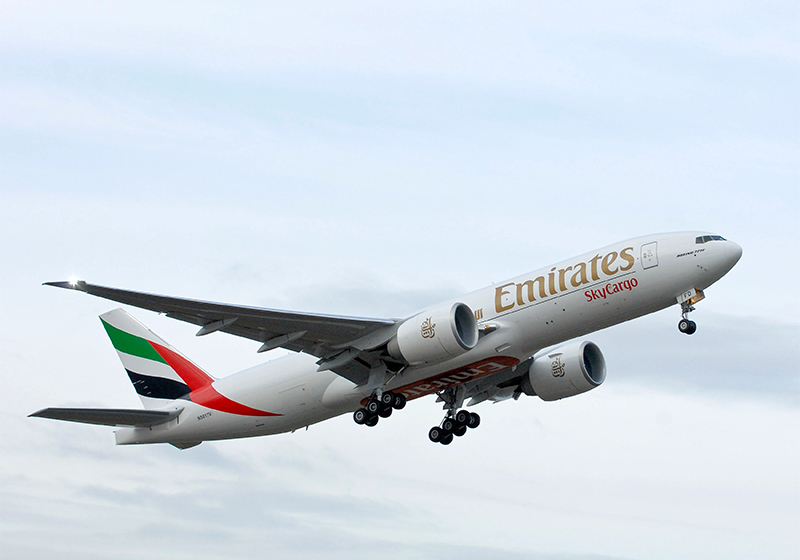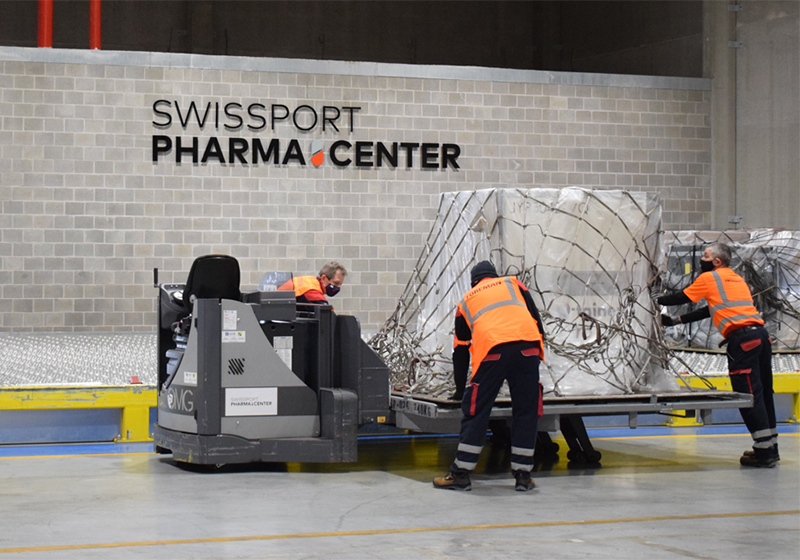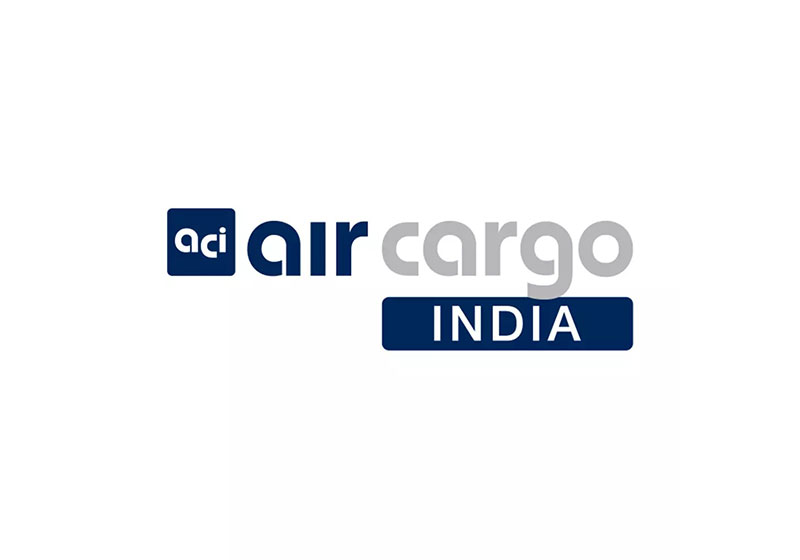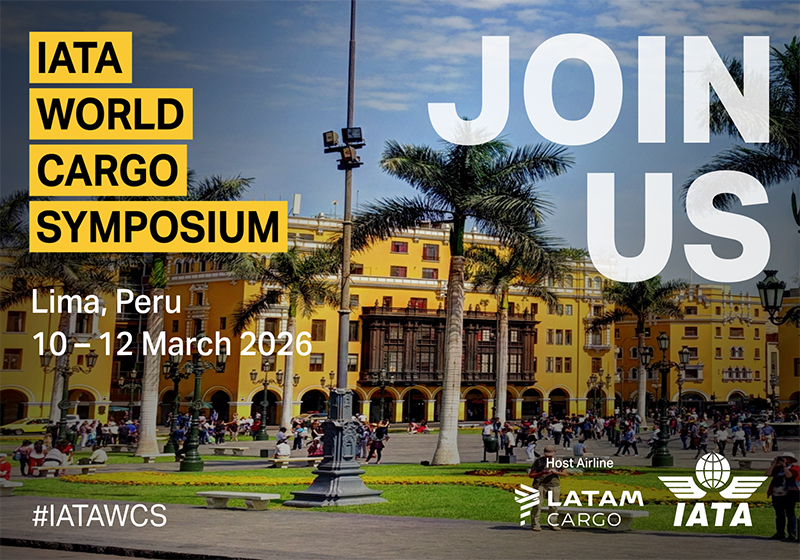In an exclusive Q&A with Ravishankar Mirle - VP of Cargo Commercial, Far East and Australasia, Emirates SkyCargo at Transport Logistic and Air Cargo Southeast Asia 2023: A Deep Dive into Southeast Asia's Evolving Cargo Trends.
1. How do you see the air cargo market trends in Southeast Asia and how Emirates SkyCargo is performing in this region so far?
Ravishankar Mirle - VP of Cargo Commercial, Far East and Australasia, Emirates SkyCargo - In Southeast Asia's evolving air cargo market, there's a notable shift from traditional goods to e-commerce dominance. Emirates SkyCargo is a prominent player since its establishment in 1989-90, showing steadfast commitment to the region. Operating in primary and secondary ports, the airline maintains load factors above 90%, reflecting its dedication to meeting cargo demands. Emirates SkyCargo's robust growth strategy includes opening new markets and adding frequencies, such as three daily flights to Singapore, five to Bangkok, and two to Phuket. Acting as a trade enabler, the airline fosters connections between Southeast Asian exporters and Dubai buyers, contributing significantly to market growth.
2. What changing trends have you seen in this region after COVID-19?
Ravishankar Mirle - In October, there's a noticeable reduction in airfreight for commodities, traditionally a peak period. Contrary to expectations, there was no peak this year, attributed to decreased demand for tech products like laptops and phones. The COVID period saw widespread purchases, and with no urgent need for replacements, the demand for quick product turnover in this high-tech sector has diminished. Conversely, the e-commerce demand has surged, and people's priorities have shifted from buying products to seeking travel experiences. Flights, especially out of Singapore, are in high demand, with average seat factors of 85-87%, indicating a strong desire for travel experiences post-COVID.
3. Which are the emerging markets for Emirates SkyCargo in Southeast Asia? How do you look at cargo growth on EK freighters vs belly in this region?
Ravishankar Mirle - For Emirates SkyCargo in Southeast Asia, the emerging markets to watch closely are Vietnam and Cambodia. Vietnam is experiencing a shift in production, particularly in high-tech industries, while Cambodia is seeing growth in the garment industry, fashion, and retail. These markets are showing potential for cargo growth.
In terms of capacity, in this region, approximately 50% is freighter capacity, while the remaining 50% is belly capacity. To clarify, the actual figures might be around 12% to 15% for freighter capacity when excluding Hong Kong from the calculation. The cargo growth on Emirates SkyCargo's freighters versus belly capacity in Southeast Asia is influenced by the dynamics of emerging markets like Vietnam and Cambodia. Additionally, it's noted that Greater China, including Shanghai, Beijing, Guangzhou, and Hong Kong, is a significant market for freight, especially for industries like garments.
4. Can you give a brief on the trade between China and UAE as well as India and UAE. How key is the role of Emirates SkyCargo in these two leading markets?
Ravishankar Mirle - Dubai and Emirates play a crucial role in connecting China with the world. Emirates SkyCargo operates from key Chinese cities, facilitating the movement of freight to Dubai, a geocentric hub strategically aligned with China's One Belt One Road initiative. Emirates SkyCargo indirectly handles a significant volume of e-commerce items through forwarders in China and Hong Kong.
On the other hand, India and the UAE represent significant markets for Emirates. With about 172 flights a week into India, Emirates SkyCargo primarily utilizes belly capacity. The recently signed SIPA agreement between UAE and India is expected to boost bilateral trade. Dubai serves as a gateway for Indian exports, connecting them to the global market. The Dubai government's strategic focus on trade and logistics, reflected in initiatives like D 33, aims to double trade in the coming years by fostering a robust multimodal transportation ecosystem.

5. How do you see the 2024 outlook of Emirates SkyCargo in Southeast Asia? What new the industry can expect from the airline in 2024?
Ravishankar Mirle - In 2024, Emirates SkyCargo foresees a stable baseload driven by the continued growth of e-commerce, anticipating potential changes in platforms and brands. While there might be some volatility in the general cargo segment, the e-commerce sector is expected to provide a consistent baseline. Variations in perishables and pharma are historically narrow, with upswings anticipated in high-tech cargo due to demand-oriented fluctuations. The garments and fashion segment, usually planned for ocean transport, may see increased conversion to air freight for reasons like quality assurance, avoiding delays, or time-to-market considerations, introducing higher volatility compared to pharma and perishables.
6. How do you see the rates volatility as compared to 2023 and the 2024? Could there be any shift in the rates in the general cargo?
Ravishankar Mirle - Emirates SkyCargo anticipates stability in rates in 2024, with an emphasis on the e-commerce baseload. The airline, profit-oriented for future growth, views surcharges as a partial cost recovery, not a revenue stream. Ambitious plans include the conversion of ten passenger aircraft into freighters by 2024, providing additional volume for products like e-commerce and perishables. The introduction of the Airbus A350 and ongoing 777X program further contributes to the airline's strategic evolution. Emirates SkyCargo emphasizes long-term sustainability over short-term market share gains and aims to strike a balance between market-driven pricing and profitability for future growth.
7. Can you give a brief on the EK SkyCargo charter services from UAE into Southeast Asia?
Ravishankar Mirle - Emirates SkyCargo employs a lean structure with a central head office and cargo managers in key locations like Singapore and India. The freighter team operates on a schedule akin to passenger flights, managing day-to-day operations and a dedicated charter desk available 24/7. Charter inquiries from brokers and forwarders are evaluated, considering aircraft availability and schedules. Emirates SkyCargo integrates charters into its overall operation, avoiding cancellations of scheduled flights for charters. The airline prioritizes transparency and customer collaboration, exemplified by its success in adapting to market dynamics, such as adjusting capacity in response to pricing concerns in Hong Kong. Despite initial reservations from agents, the flexibility and transparency have resulted in increased charter requests, demonstrating the effectiveness of Emirates SkyCargo's approach.






